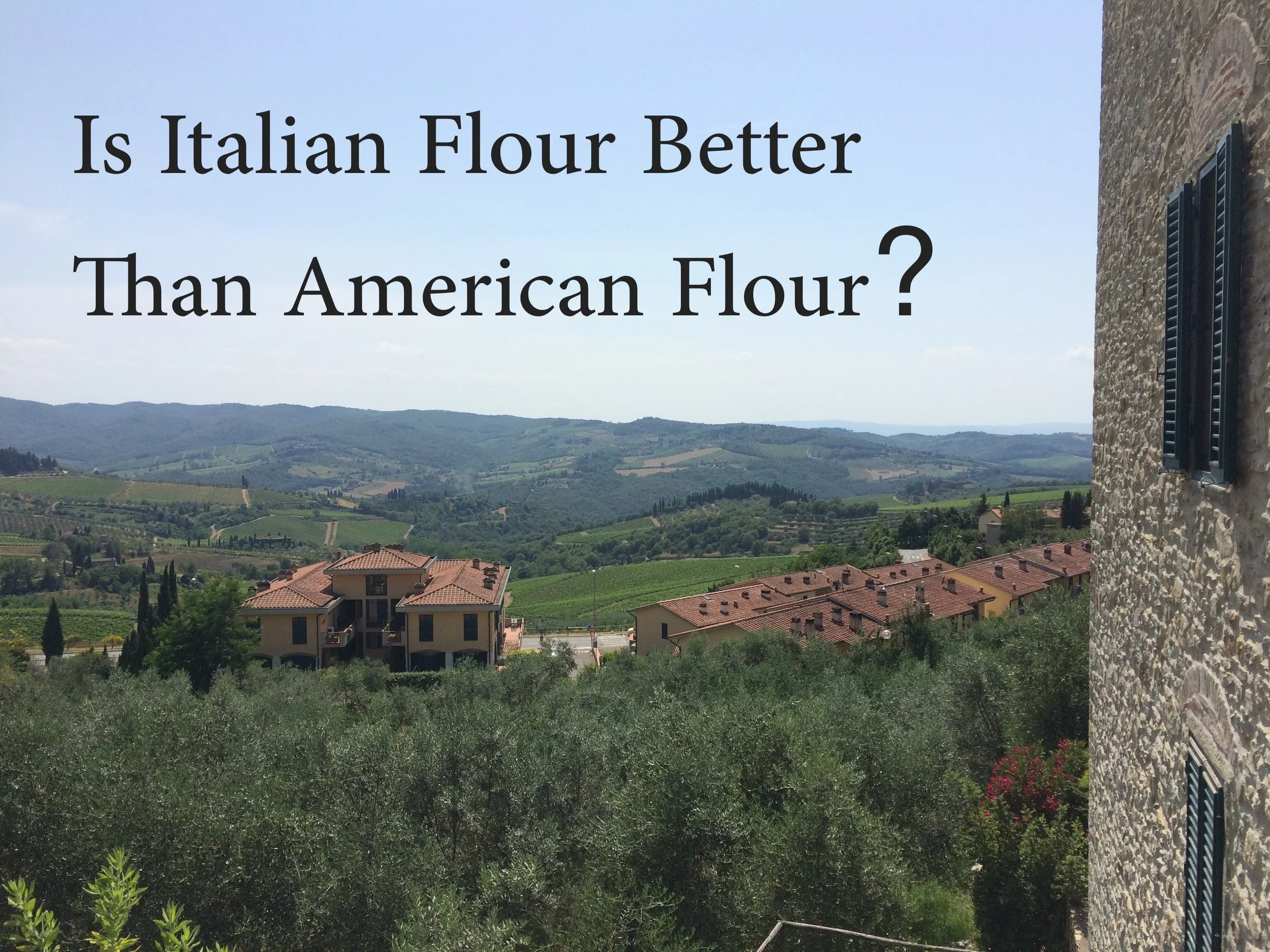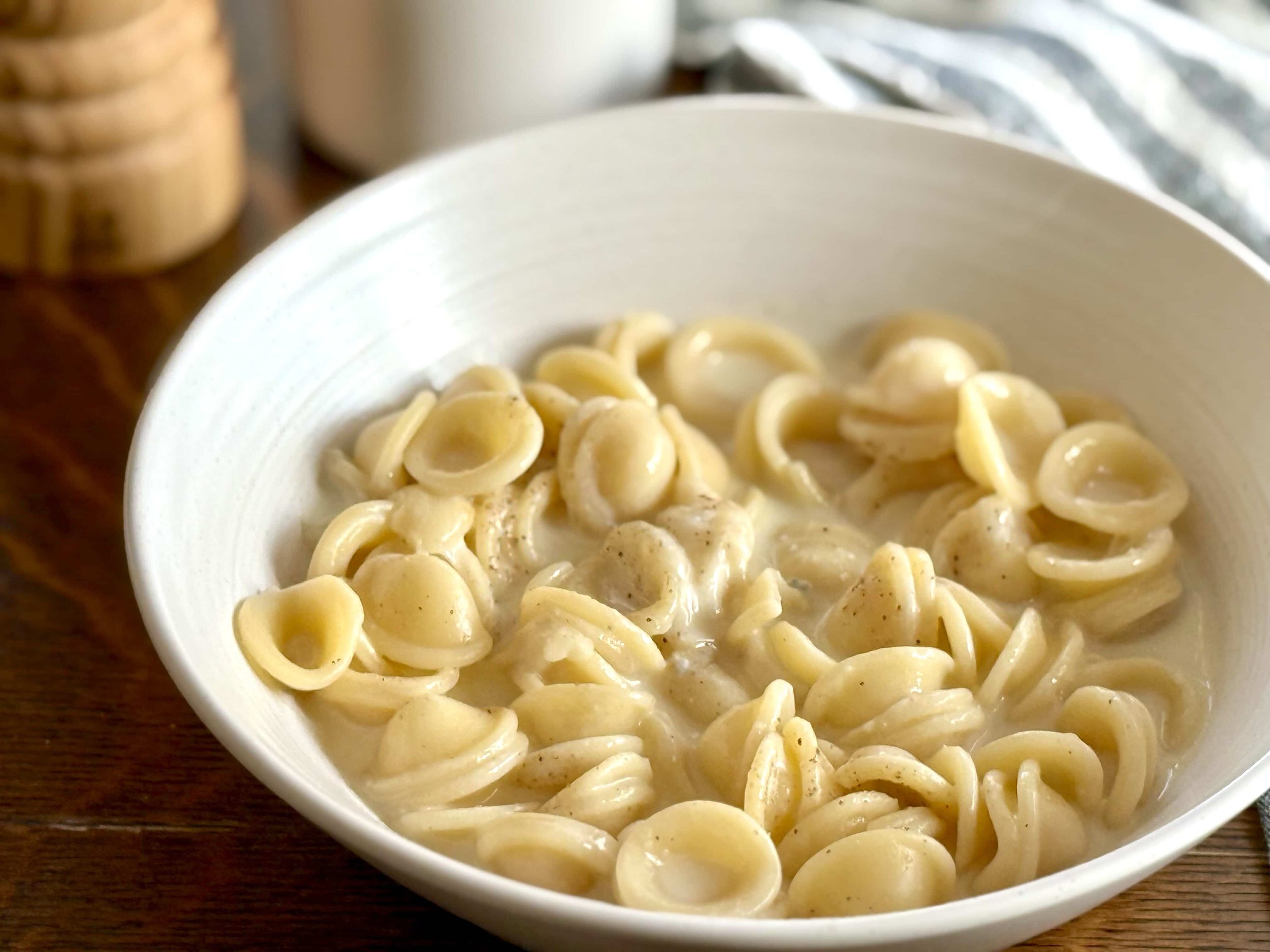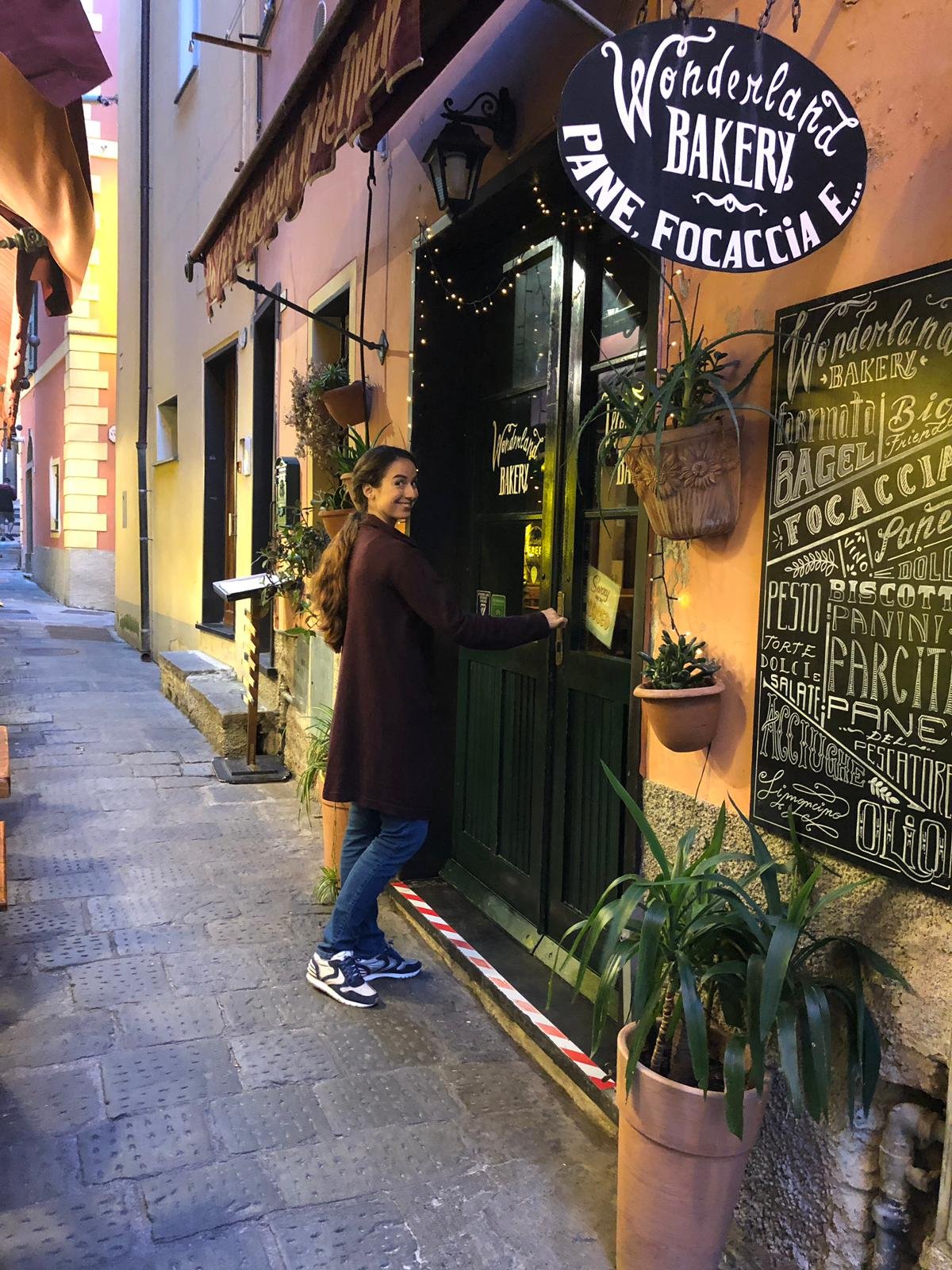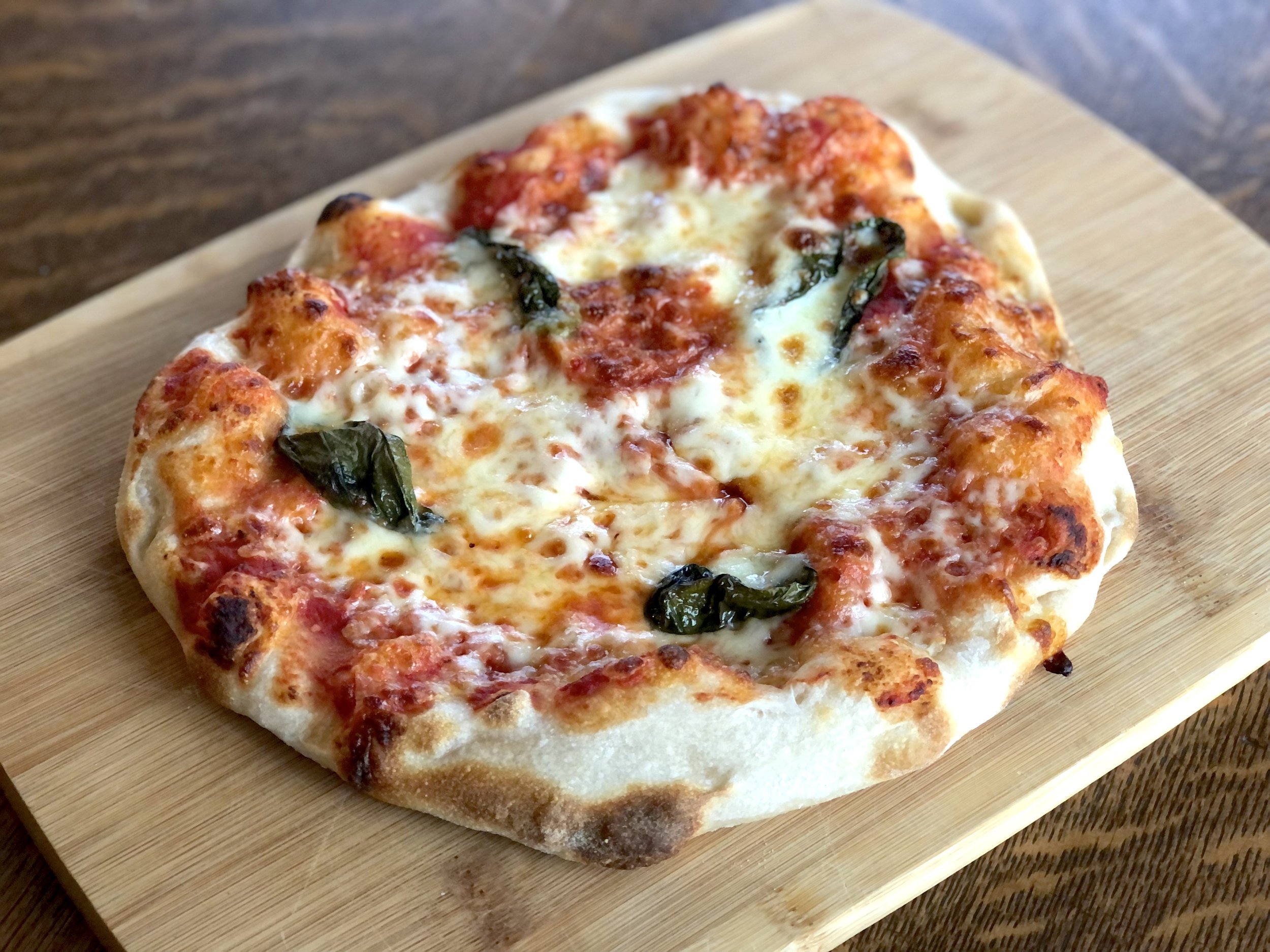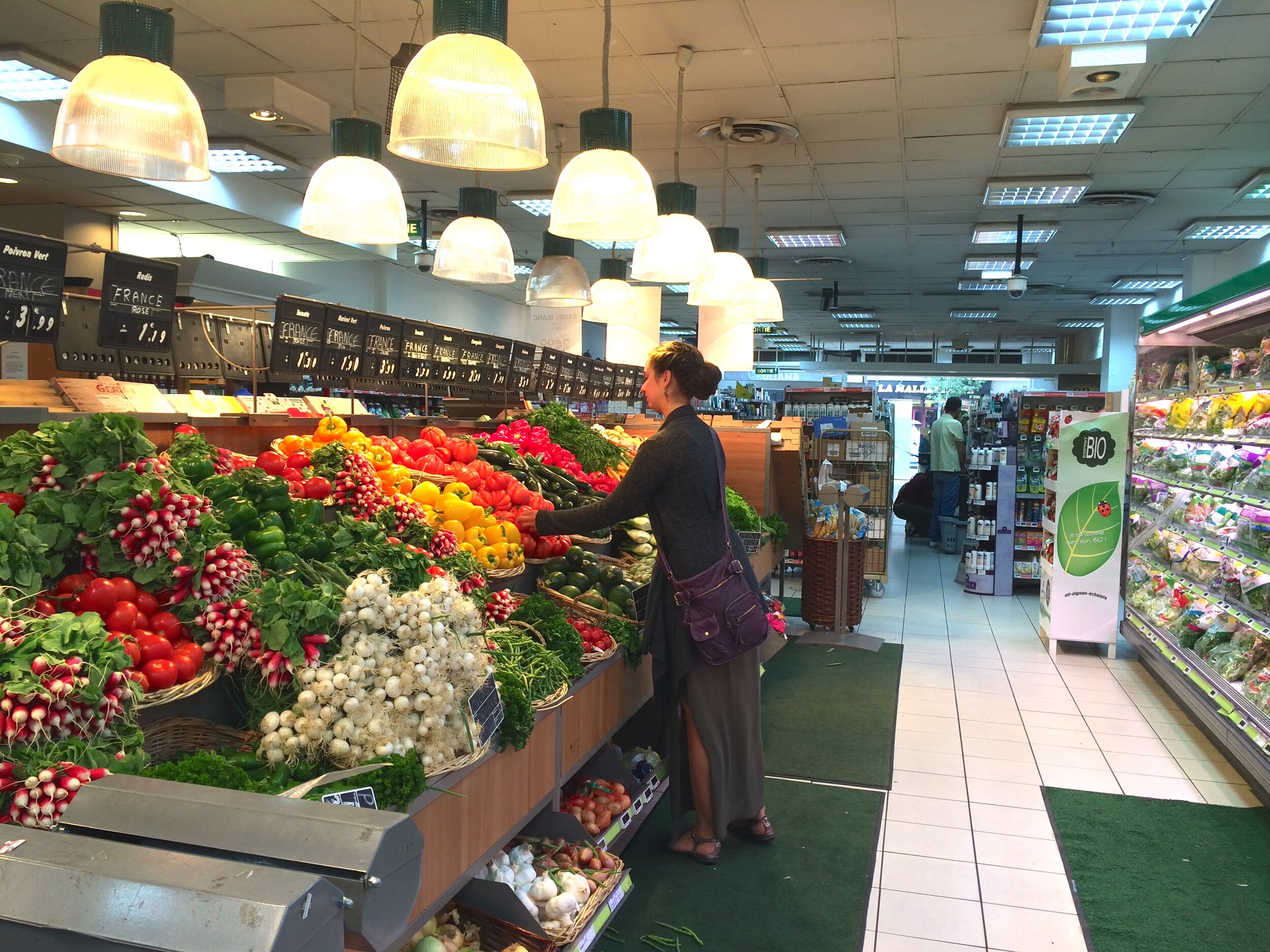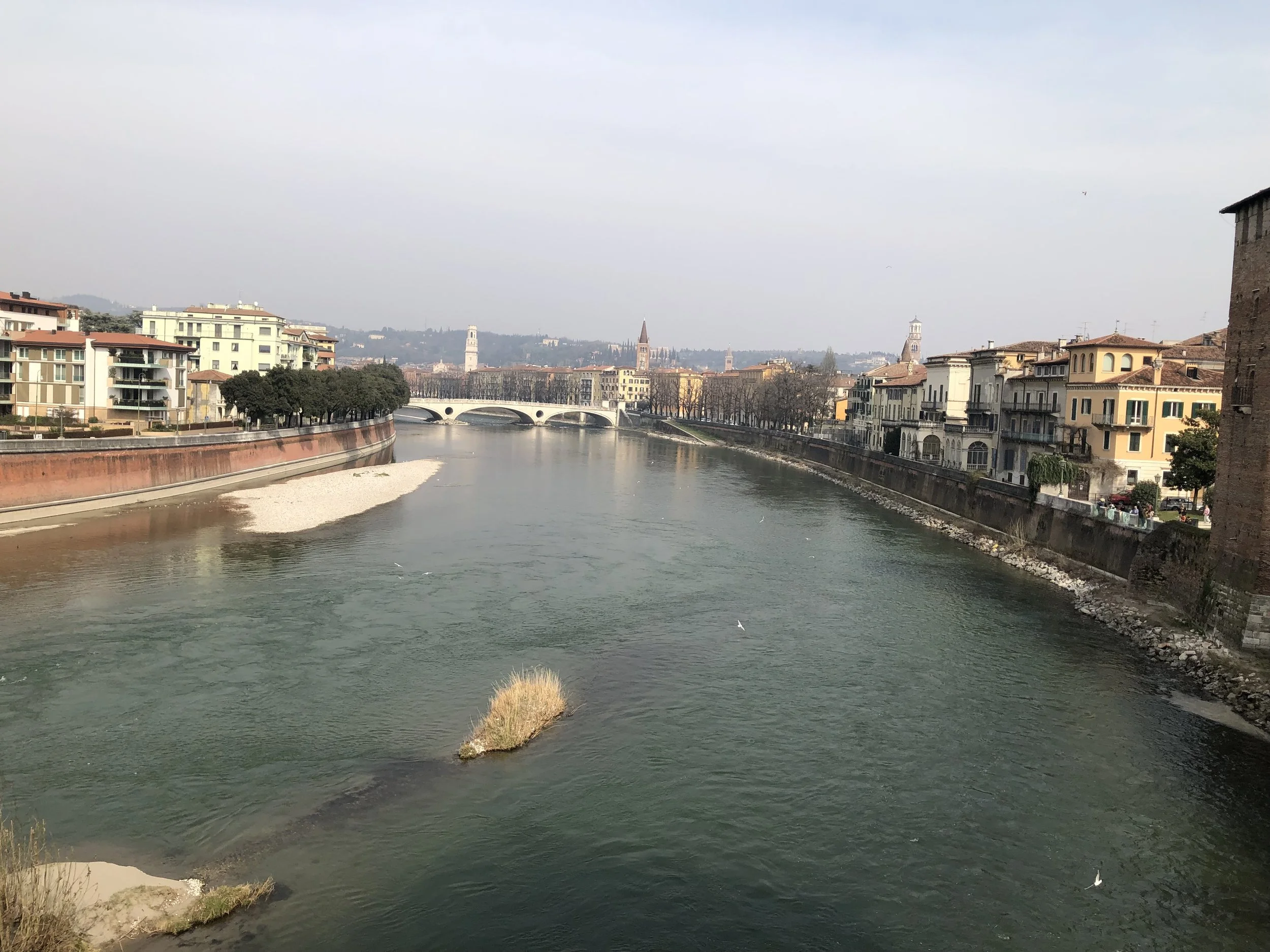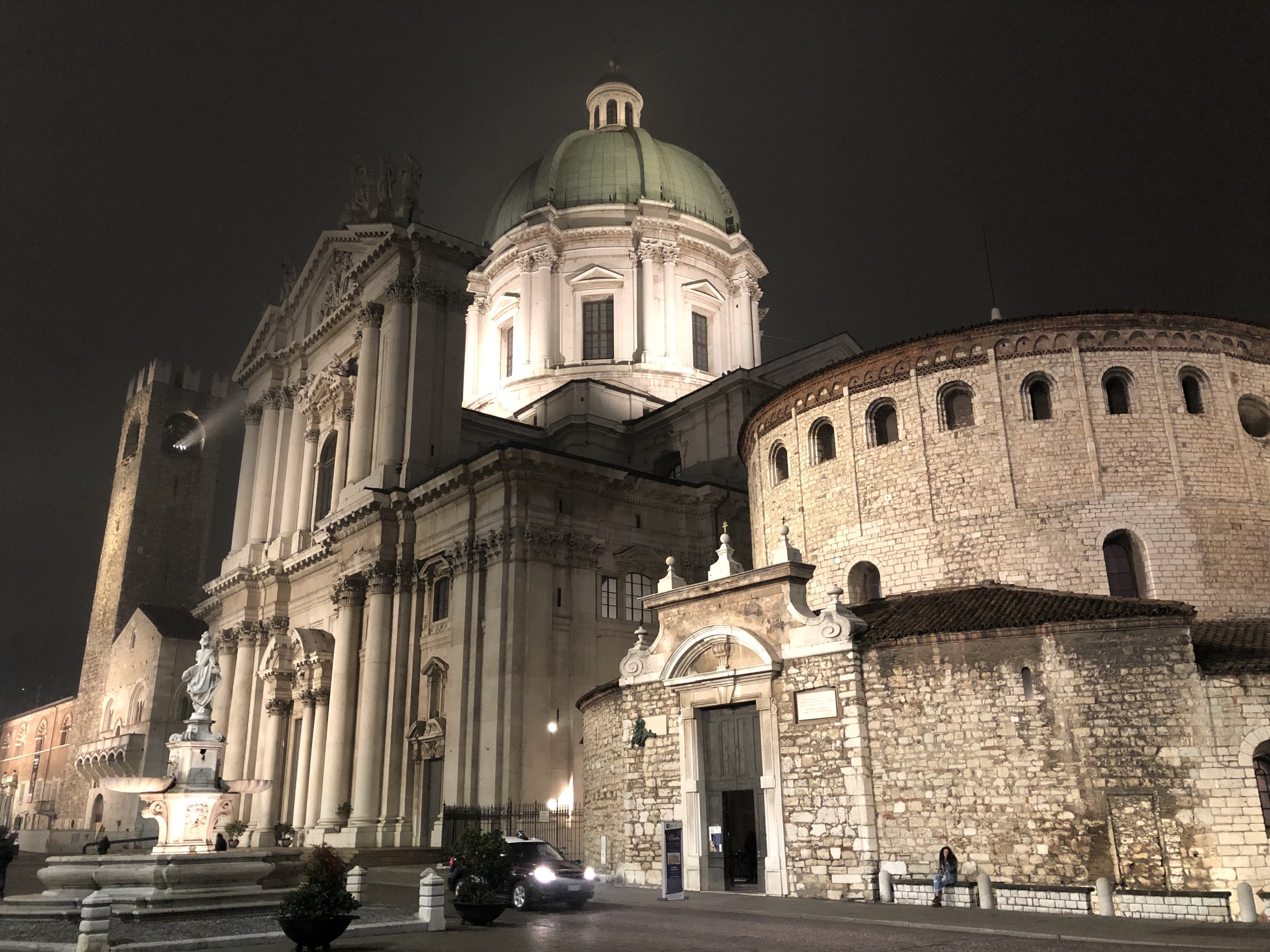How to Learn Some Italian Using Words You Already Know - Lesson 3
/Here we are at the third and final installment of this little series, “How to Learn Some Italian Using Words You Already Know.”
What originally began as my fascination with the amount of English words used in Italian ended up turning into these comical learn-Italian-effortlessly lessons. Aren’t you glad I decided to write them down? Heheheh. :)
In Lesson 1 we saw all the English words Italians use in every day conversations, or that are the same. Words like budget, Facebook, privacy, password, etc.
In Lesson 2 we saw all the Italian words we can learn simply by adding vowels onto the end of English words, like tubo, musica, dieta, cono, etc.
After Lesson 2 you might be feeling pretty snazzy with all the new words you learned. If you spend any time listening to or reading Italian, maybe you have started to keep an eye out for other words that can easily be deciphered. You’ll probably notice plenty of them that didn’t even make it in these lessons!
Therefore, before things get too comfy, I am going to burst your bubble a bit in Lesson 3. How lovely. We are still going to learn some new words, but we will look at a variety of words that are the same (at least written) or that you think would be the same or mean something similar. But they’re not, or they don’t.
For example, let’s look at the word “peperoni.” You might be looking at an Italian pizza menu and spot a friendly face: Peperoni Pizza. (Truly it would probably be called “Pizza ai Peperoni” or “Pizza con Peperoni” but regardless, you understand “pizza” and “peperoni,” right? Maybe not—>) You order your peperoni pizza while snickering at how they spelled “pepperoni” with only one “p” instead of two. Your pizza arrives and to your shock and dismay, you have a cheese pizza with bell peppers, not pepperoni, and are snickering no more. This is an all too common mistake made by meat-loving American tourists, as indeed “peperoni” means bell peppers in Italian, not spicy-meat-sausage-pizza-condiment.
One more for ya: If you saw the word “arma” you might think it means “arm.” I probably would, too. But guess what? It actually means “weapon.” So don’t go around saying what a nice “arma” that person has, thinking you’re complimenting their strong biceps, alright?
You’ll be happy to see that today’s list is not as extensive as the other lessons, but I’m sure it will continue to expand as I’ve been adding new words almost daily to the other lessons since I’ve posted them. If you want to be of help in growing any of these lists, drop me a note in the comments below or send me a message!
This post may contain affiliate links. If you make a purchase using these links, Jennyblogs may receive a small commission, at no extra cost to you. This helps to support Jennyblogs. Where possible, links are prioritized to small businesses and ethically and responsibly made items. For further information see the privacy policy. Grazie!
Italian Words That Are Not All That They Seem
Camera (CAH-mair-a) - not a photo camera, but a room. An apartment with two camere.
Lampone (Lahm-PO-nay) - you might think this means lamp, but it actually means raspberry.
Lampo (LAHM-po) - still doesn’t mean lamp, but this refers to a twinkle, flash of light, or lightning. I frequently get this confused with lampone and am forever saying “ohhh, did you see that raspberry in the sky?” It’s embarrassing.
Stiro (STEE-ro) - not stir, but a verb that means “I iron.”
Topo (TO-po) - I’m on topo of the world! Nope. Topo means mouse.
Formica (for-MEE-ca) - You might be thinking formica countertops? Nope. Formica means ant. So you might have a formica or two on your formica.
Peperoni (peh-per-OHN-ee) - As mentioned above, this is not pepperoni misspelled, but actually bell peppers. By the way, I love peperoni on my pizza! Give me all the pizze ai peperoni! ;)
Sale (SAH-lay) - Shopping friends, don’t get too excited, this doesn’t mean sale, as in discounts or reduced prices. Sale in Italian means “salt”.
Salsa - salsa means sauce. While Americans take salsa to mean the spicy red tomato and pepper sauce (ya know, chips and salsa?), this is used much more generically in Italian. It can be used to mean a dressing, condiment, sauce, gravy, etc. You can also say sugo, which is a bit more specifically translated to sauce. So if you’re deciding which sauce you want to go with your pasta, you would be better off saying sugo.
Moka - if you hear someone talking about moka, you might be thinking of the mocha with coffee and chocolate. What they’re probably referring to, though, is a moka pot, the instrument of choice for making espresso at home!
Latte - another word that often results with tourists in a conundrum. Latte as it is known in the English speaking world is really a shortened form of caffè latte, which is Italian in origin. So when you try and order a simple latte in Italy, you will end up with a glass of milk. If you want a latte WITH coffee, then go ahead and order that caffè latte, sometimes also spelled caffelatte or caffellatte.
Kebab - While we could call anything in America that’s skewered (fruit, meat, veggies) a kebab, in Italy it refers to the very large hunk of mixed meats that is skewered and slowly roasted while rotating. This meat is shaved as it’s roasted and used to make kebab wraps or sandwiches, referred to as just kebabs. It has origins in the Middle East, and is why most of the kebab restaurants will be Pakistani, Turkish, Indian, etc. It’s delicious, by the way.
Granite (grah-NEE-tay) - more countertops? No, rather the Italian version of a slushy. I’ve never had one, maybe because I don’t much care for slushies. I’m sure if I tried one, in its little 8oz-ish cup with fresh fruit flavors, I would enjoy it, especially if I were in Sicily where they’re supposed to be the bomb.
Gusto (GOOS-toh) - I always thought we used this to mean with oomph, with style, in English. As in, “he swirled his cape with gusto.” In Italian, this means taste. So it still kinda works, “he swirled his cape with taste.” Eh, not quite the same.
Punto (POON-toh) - Not a football punt, but a point, period, or dot. Get my punto?
Solo - dance solo, flying solo? Yes, finally one that is more or less correct! Solo means by yourself, alone, or just or only, as in “just one pizza, please!” How many cones of gelato did you eat today? “Solo uno!” (Only one!)
Mano (MAH-no) - if someone asks you if want a mano, they’re asking if you want a hand, not a man, silly. Man is uomo. Mano is hand.
Oro - do you want pizza oro pasta? <——Not correct usage. Oro means gold. The Italian way to say “sweet dreams” is to say “sogni d’oro” or literally, dream of gold! Awwwwwww.
Argento - maybe this one isn’t all that close to Argentinian, but if I didn’t know what it meant that would probably be my guess. It actually means silver! Now that you know how to say both silver and gold in Italian, you can sing your favorite song come Christmas time. Argentooooo e oroooo, argentoooo e oroooo..!!
Avvocato - if you ask someone what they do for a living and they respond with, “I’m an avvocato,” they’re not delusional, they mean that they’re a lawyer. That double v and t for a d makes a very big difference in differentiating between our little green friend and a career choice.
Slip (sleep) - we might say slip in reference to an under-dress or under-skirt, but in Italian this refers to underwear. This can be men’s briefs or ladies’ undies.
Casino (cah-ZEE-no) - you might think Italians talk an awful lot about casinos as you hear them mutter, “che casino!”, but this really means “what a mess.” If you come to Italy to live you too will soon be muttering this under your breath, often and fervently. To say casino it’s actually casinò, with the accent on the end.
Per - this literally means for in Italian, and although it is used in both languages, we use it a bit differently in English. If you want to translate the English per to Italian, sometimes it’s per, other times a. “Let’s make 3 cookies per person” / “Facciamo 3 dolcetti per persona.” “We earn about $100 per day” / “Guadagniamo circa $100 al giorno.” It can also be used to talk multiplication. Five times five equals twenty-five. Or cinque per cinque fa venticinque.
Grasso - what a nice, lovely yard of green grasso you have there! Grasso means fat. We basically just insulted someone’s fat yard. If you want to say grass, say erba.
Grosso - not gross, but another way of saying big, fat, and wide. For example, the movie “My Big Fat Greek Wedding” is called “Il Mio Grosso Grasso Matrimonio Greco” in Italian. If you wish to say gross, say schifo. Che schifo! / How gross!
Fine (FEE-nay) - La fine / the end! Not “Fine and dandy!”
Arma - this one we also discussed above, so you should be wise enough to know it doesn’t mean arm, but rather weapon. Unless you swing a good one and want to think of your arm as a good one?
Pronto - “I need the report pronto!” meaning right away, asap…in Italian, this means ready, and also what they say when they answer the phone. “Pronto? ahh ciao Chiara, come va?”
Vesto / Vesti / Veste - none of which mean vest. These are the first, second, and third person of the verb vestire which means to dress, so I dress, you dress, and he/she dresses, respectively. Sounds like an article of clothing but refers to dressing, easy enough to remember, no?
Here we are, 3 lessons later, actually 4 if you needed a refresher on the Italian alphabet and pronunciation. What have learned? Oh, ya know, only 200+ new Italian words!


